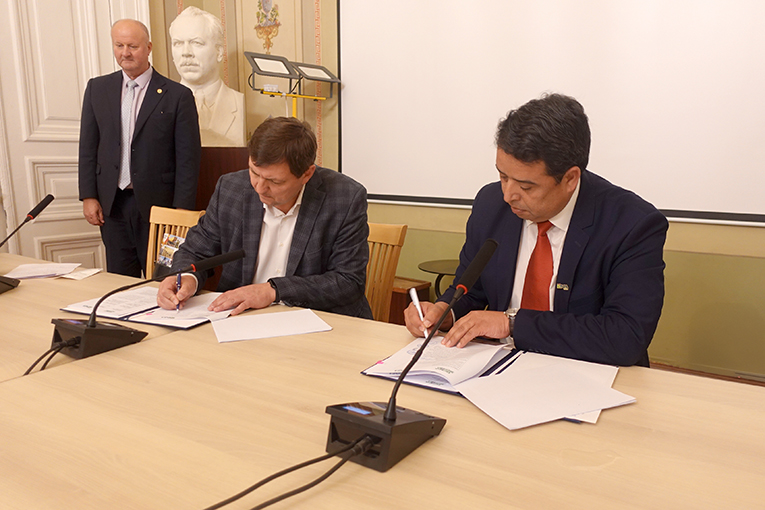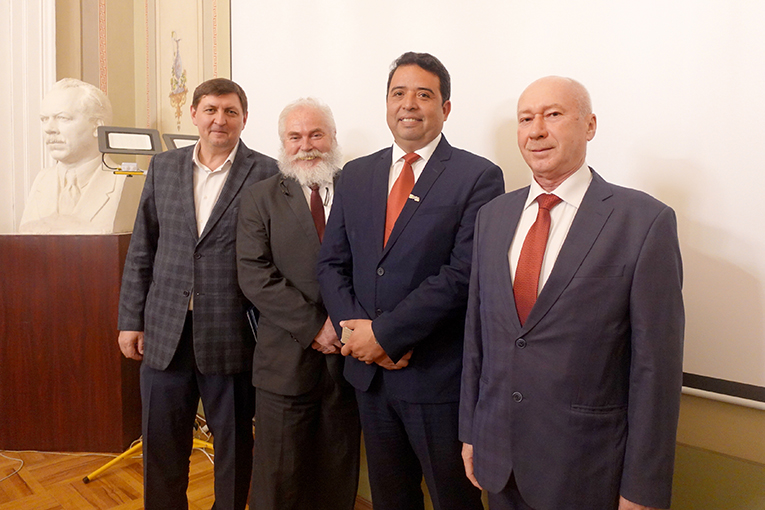Double-cropping becomes a reality
Press-centre / News,
EkoNiva’s Plant Breeding and Variety Maintenance Centre and the Institute of Agricultural Research of Chile (INIA) have signed a Memorandum of Cooperation aimed at introducing fast‑track breeding techniques and facilitating bilateral experience exchange between the two countries.

The document was drawn up as part of the return trip of the Chilean representatives to Russia. At the beginning of the year, EkoNiva's employees made a working visit to INIA and the republic’s plant breeding and seed production enterprises to discuss tools for accelerating the breeding process. In particular, they looked at the option of arranging the multiplication of EkoNiva's in-house seed lines in the so-called ‘winter nurseries’. The focus will be on soya beans, chickpeas and lentils. After growing the varieties in the Eurasian area in the summertime, the Group will be able to harvest a second crop in the southern hemisphere in winter.
‘The cooperation with our Chilean partners will allow EkoNiva to speed up the seed multiplication significantly – by 2-3 years – without affecting the genetic material quality’, emphasises Vitaliy Voloshchenko, Director of EkoNiva’s Plant Breeding and Variety Maintenance Centre. ‘This, in its turn, will reduce the time required for some stages of the breeding process and thus the introduction of new Russian varieties into the market.’
The memorandum also provides for the exchange of scientific information, competencies in the adaptation of genetic resources and the parties’ collection materials for the implementation of the joint programmes, maintenance and use of different varieties in both countries.
‘Chile, like Russia, is concerned about food security, so it strives to create a gene bank and develop plant breeding’, says Christian Alfaro Jara, Deputy Director for Research and Development, Institute of Agricultural Research of Chile (INIA). ‘Within the memorandum, plans are afoot to develop plant breeding programmes and specialised training in genetic progress, to exchange genetic material and arrange off-season nurseries. In Arica, a city in the north of Chile, which is known as the city of eternal spring, there is a breeding station where any crop can be cultivated and harvested three times a year.’

The memorandum was signed at VIR 130: Plant Genetic Resources, an international conference dedicated to the anniversary of the founding of Vavilov Institute of Plant Industry. EkoNiva’s representatives met with fellow scholars from Russia and foreign countries at the roundtable discussion ‘Plant breeding and seed production: exchange of experience, development issues’ held under the auspices of the National Union of Plant Breeders and Seed Producers of Russia.